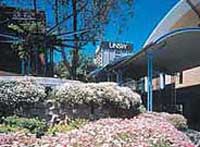|
|||||||||||||||||||||||||||||||||||||||||||||||||||||
| Defamation and the Media - LAWS8014 | |||||||||||||||||||||||||||||||||||||||||||||||||||||

Description The broad aims of this course are twofold: first, is to consider the significant restraints that defamation law and associated causes of action place on what can be published by the media; and second, is to consider whether the extent and scope of such restraints are appropriate. These aims are pursued through a detailed comparative analysis of defamation law in Australia, the UK and the US, as well as by looking at many of the practical aspects of defamation law that contribute to its impact on media freedom. Particular focus is placed on questioning the appropriate balance between the protection of personal reputation and the media’s perceived role in a democratic society as both ‘watchdog’ and ‘bloodhound’.
LLM Specialisations Recommended Prior Knowledge None
Course Objectives A candidate who has successfully completed this course should:
Main Topics
Assessment
Course Texts Prescribed Recommended
Resources Refer to Course Outline provided by lecturer at the beginning of session.
|
|||||||||||||||||||||||||||||||||||||||||||||||||||||


